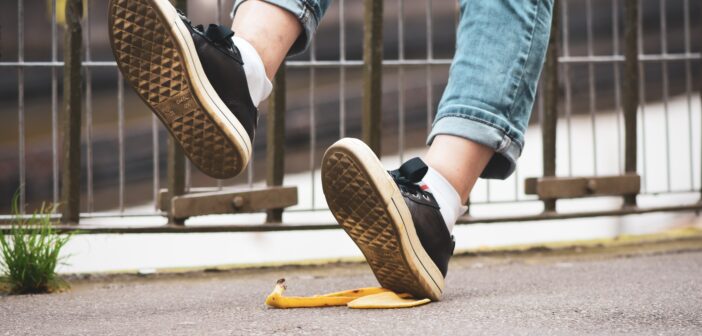Falls are always a bad thing, as they bring injuries and pain, causing you to have to postpone any plans you have and put your regular schedule on hold until you recover and are ready to resume your daily activities.
Depending on your age or the presence of pre-existing conditions, falling can bring disastrous consequences, leading you to struggle with lifelong health issues. If you’re worried about this type of injury causing life-altering changes and impacting your livelihood, here are some habits that can help keep you safe and allow you to get your life back on track if you happen to become injured.
Safety
Making sure that all safety rules are followed regardless of where you are will dramatically diminish your chances of falling and becoming injured. In the workplace, your employer should provide the right conditions that ensure there’s no threat to your general well-being. If you become wounded due to spills that weren’t cleaned accordingly or because of clutter or cables on the floor, you should seek legal compensation to receive the total amount you deserve, depending on the health damage you sustained.
The same mindset applies to the household as well. You should keep all staircases and walkways clean and free of anything hindering your movements, including books, shoes or vases. Rugs can move out of place, but if you fix them with a special adhesive, the risk is eliminated. Wet surfaces are naturally more slippery, so you should invest in non-slip mats for your bathtub or shower as well. Keep all items you need or use in an easily accessible area so you don’t have to climb on stools to reach places that are out of reach.
Make sure the rooms or hallways are well-lit anytime you have to walk through them, even if you’re just passing through. It’s always best to be safe rather than sorry. Shoes with rubber soles can keep you from slipping as well. Some of the safety measures are season-specific. For instance, if you have to walk on a sidewalk that is wet or that has become icy overnight, you might want to avoid it altogether and walk on the grass instead.
Balance
Although working out may seem inconsequential regarding tripping and falling, it is actually beneficial. It helps you become stronger and get a better sense of balance, both of which will help you become steadier. Strengthening your core, back and legs will help you quite a lot. If you notice that it’s still challenging to maintain your balance, you should talk to a physical therapist and consider starting yoga or tai chi, both very structured and slow workouts that’ll help you work on your posture and stability.
Remember to prioritise your health and make sure your calcium and vitamin D levels are within the adequate levels. They help prevent bones from losing their density, making fractures much less likely. Although you should make sure you’re not missing out on vitamins and minerals regardless of your age, it’s all the more important to be mindful of your diet and take your supplements if you’re over fifty. Get your eyes checked regularly to ensure there are no problems with your vision. If you need glasses or contacts, remember to wear them according to your prescription, and you’ll see that avoiding accidents is much easier.
Slow movement
If your mobility is restricted and you struggle to keep your footing steady, you must learn to move slower and listen to your body. Rushing makes you more likely to fall since you’re less likely to notice anything else, including slipping or tripping hazards. Hurrying to do things such as answering the phone or the door follows a similar pattern, and you can slip and fall this way. Take your time when needed, even if it means being a little late. It’s better than becoming injured and having to struggle through weeks, months or even years of recovery.
Using a cane or a walking frame can help if required, as appropriate use prevents falls. If you’re not sure whether you need one or not, it’s best to speak to your doctor to decide what works best for you. The cane and walking frame should be the right size for you, and the wheels should roll smoothly at all times. This is especially important for areas unfamiliar to you or if you’re walking on uneven surfaces.
After the accident
If you become the victim of a trip and fall accident, you shouldn’t try to get up right away. Take a moment to steady yourself and assess your situation. There might be people nearby who are willing and ready to assist you. If you find it challenging to get back on your feet on your own, you should let them help. Even if you can’t see any visible scratches, bleeding or bruising, you should still request medical assistance.
Some health damage might not show any symptoms only several hours later, by which time your condition is likely to deteriorate much faster. Going to the doctor immediately lets you avoid a medical emergency and a potentially life-threatening condition. If you are dealing with osteoporosis that makes bones brittle, even minor falls might be dangerous and should be assessed by a physician. Even if you’re not physically injured, you might still struggle with dizziness or anxiety as a result of the panic and fear that comes with the unexpected incident. A doctor can help with both.
Recovery
In the aftermath of your accident, you must remember to be consistent with your treatment since it will give you the best chance of recovering. Pain, swelling and fatigue are all common after this type of injury, and they can all contribute to generalised discomfort, leaving you unable to sleep well and making the recovery period much more uncomfortable than it needs to be.
Cold packs and even a bag of frozen vegetables can help a swollen ankle or wrist ache less. Keeping your feet elevated promotes better fluid drainage, so the swelling goes down much faster. If your doctor recommends physical therapy to regain your full mobility, make sure to follow through and don’t skip any class. Progress takes time and effort.
Although it can seem like a mild thing, falling can actually have detrimental effects on your well-being in the long term. Avoid dangers and follow your doctor’s advice to lead a wholesome, healthy life.




